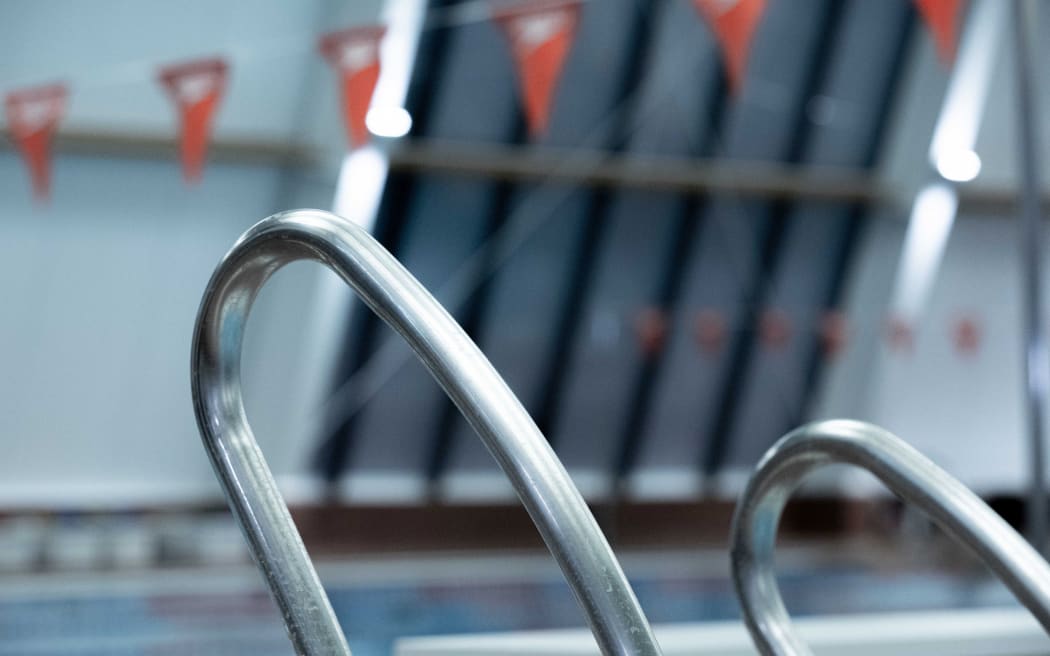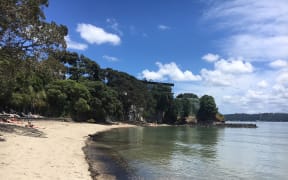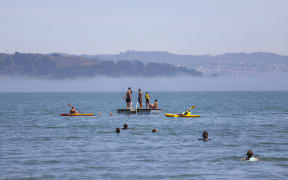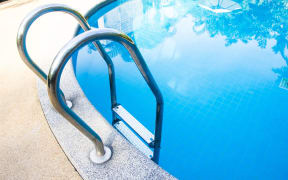
Photo: RNZ / Marika Khabazi
The cost-of-living crisis means parents are cutting back on swimming lessons for their children, Water Safety New Zealand says.
A new report shows two in five families do not have their children enrolled in a learn to swim class, with a further third believing their children are too young to learn to swim.
New Zealand experienced its highest annual drowning toll in the past decade last year, with 94 preventable deaths, 15 percent higher than the 10-year average.
Swimming, usually the most common cause of recreational drowning fatalities, was just above the 10-year average in 2022.
Water Safety chief executive Daniel Gerrard said one of the causes of the fatalities was the lack of early education on how to be safe in the water.
"And we are talking about the basic things like being able to float, move through the water, keep yourself safe until someone can come and rescue you."
He said the high cost of living was one of the reasons stopping families from getting swimming lessons.
"The cost of lessons is a limiting factor. We hear that parents are making choices that maybe only one of their children gets to go to lessons, so we do need to make sure that the school curriculum captures those basic aquatic skills correctly."
Gerrard said schools needed more support to include water safety in their curriculum.
"Schools need access to proper swimming pools, they need to be able to transport their kids to the right facilities to get those lessons.
"We need to start right at the bottom and talk about basic aquatic skills and make sure that nobody's left behind in that space."
Once fundamental skills were learned, that was when swimming lessons became important, he said.
"We are working with swim teachers and coaches and other swim schools around the country to make sure that those financial barriers are removed.
"There's programs like Swim It Forward where people can donate money to get kids to swimming lessons, things like that are all going to be part of the solution."
Gerrard said cultural differences also played a significant role in shaping the acquisition of water skills at an early age.
"There's lots of cultural challenges, a variety of cultures have different approaches to the water and what it is for; whether it's the pantry where you go and only gather food or if it's a place to go and play.
"There's even things like mums and dads that may have had a bad experience with water themselves and are just choosing not to let their kids go anywhere near the water."
He said more people, especially children, needed access to lifelong participation in sport and recreation, especially in and around water.
"We are working really closely with the Ministry of Education, and they are endorsing the Water Skills for Life programme to get that out to the schools now, so that's a big positive.
"But we all have personal responsibility here. We all need to make sure that we're all safe around water, that everyone has some basic knowledge and skills, mostly little New Zealanders."
Since January, 76 people have died in the water in New Zealand.
Gerrard said Water Safe's new modelling tool was predicting another 25 deaths by the end of December.
"We get information from the police and the coroners about fatalities, we get Ministry of Health data around the hospitalisations, and we get ACC and Search and Rescue data around all the near misses.
"We can now overlay all those data points and it starts to indicate how many, how often, where it is happening and where the pressure points are. "
With more than 50 years of data, the charity was able to start predicting when and where fatalities were more likely to happen, he said.
"And it's looking we could have just over 100 fatalities in total for 2023, one every two days for the rest of the year, which is just unbearable.
"It is a national disaster that we all need to be paying attention to," Gerrard said.





